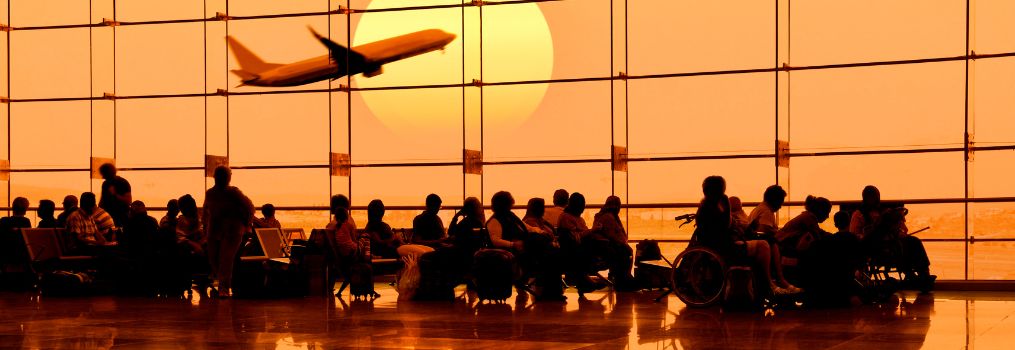
Flight compensation claims: What are ‘Extraordinary Circumstances’?
Extraordinary circumstances are often cited by airlines as a reason to deny compensation claims for flight delays or cancellations. But what exactly are extraordinary circumstances, and when is this justification valid? Understanding your rights under Regulation 261/2004 can help you determine if you’re eligible for compensation, even when airlines use this term as an excuse.”
Your rights under Regulation 261/2004
Under Regulation 261/2004, in effect across Europe since 2005, and the post-Brexit Air Passenger Rights and Air Travel Organisers’ Licensing (Amendment) (EU Exit) Regulations 2019, airline passengers’ rights are protected. For instance, if your flight is delayed by three hours or more, you may be entitled to compensation of up to €600 per person. However, airlines are not obligated to pay compensation if they can prove the issue was caused by extraordinary circumstances. But what exactly constitutes extraordinary circumstances? Unfortunately, neither regulation explicitly defines this term.
Over the years, court rulings such as the Van der Lans case and the Walletin-Hermann case have provided greater clarity on what qualifies as extraordinary circumstances. The key principle is that the issue must arise from events that are not inherent to the normal operation of the airline and are entirely beyond its control. Examples could include severe weather conditions, security risks, or strikes by air traffic control.
At EUclaim, we specialize in helping passengers determine their eligibility for compensation. With access to our advanced Lennoc Flight Intelligence database and our extensive experience in winning court cases, we can accurately identify when an airline wrongly uses extraordinary circumstances as an excuse. Don’t let vague claims stop you from receiving the compensation you deserve.
Air Passenger Rights: EU and UK Regulations
Regulation 261/2004 has been protecting the rights of airline passengers in Europe since 2005. After Brexit, these rights remain safeguarded under the Air Passenger Rights and Air Travel Organisers’ Licensing (Amendment) (EU Exit) Regulations 2019. Both regulations ensure that airline passengers are entitled to compensation for flight delays or cancellations. For instance, if your flight is delayed by three hours or more, you could claim compensation of up to €600 per person. However, airlines are not required to pay compensation if they can demonstrate that the flight disruption was caused by extraordinary circumstances. But what exactly qualifies as extraordinary circumstances? Unfortunately, the regulations do not explicitly define this term.
Since 2005, court rulings such as the Van der Lans case and the Walletin-Hermann case have clarified the scope of extraordinary circumstances. These rulings emphasize that the issue must stem from events that are not inherent to the normal operations of the airline and are entirely beyond its control. Examples include extreme weather conditions, political instability, or security risks.
At EUclaim, we have developed extensive expertise in identifying whether a flight disruption falls under extraordinary circumstances. With the help of our unique Lennoc Flight Intelligence database and years of experience successfully representing passengers in court, we can determine when an airline unjustly invokes extraordinary circumstances to deny compensation.
Don’t let airlines misuse this term—know your rights and claim what you’re entitled to.
Compensation
per person
-
€250
Short distance
<1500 km
London – Barcelona
-
€400
Medium distance
1500 – 3000 km
London – Lisbon
-
€600
Long distance
>1500 km
London – Bali
An extraordinary circumstance refers to a situation where the airline cannot be held responsible for flight disruptions. These situations typically fall outside the airline’s control and include the following examples:
- extreme weather conditions during the flight, such as heavy fog or storms
- natural disasters, like a volcanic ash cloud
- strike action by air traffic control
- medical emergency landings
- acts of terrorism
- issues involving passengers on board the airplane
However, not all situations qualify as extraordinary circumstances. The following are examples where airlines remain responsible:
- technical faults on the airplane
- crew shortages or sickness
- strikes by airline personnel
Understanding the distinction between extraordinary circumstances and situations under the airline’s control is crucial when determining your eligibility for compensation. At EUclaim, we have the expertise to help you navigate these complex scenarios and claim what you are entitled to.
What are you entitled to in exceptional circumstances?
Regulation 261/2004 and the Air Passenger Rights and Air Travel Organisers’ Licensing (Amendment) (EU Exit) Regulations 2019 clearly define airlines’ obligations to care for passengers during flight disruptions. The required level of care depends on the flight distance and the length of the delay:
- For flights up to 1,500 km: care must be provided after a delay of two hours or more
- For flights between 1,500 km and 3,500 km: care is required after a delay of three hours or more
- For flights exceeding 3,500 km: care must be provided after a delay of four hours or more
This care obligation includes providing essential items such as food, drinks, and, when necessary, hotel accommodation for passengers affected by delays. Crucially, airlines are required to fulfill this obligation even if the delay is due to extraordinary circumstances, such as severe weather conditions, air traffic control strikes, or other events beyond their control.
By understanding your rights under extraordinary circumstances, you can ensure you receive the support and compensation you’re entitled to during unexpected disruptions. At EUclaim, we specialize in helping passengers navigate their rights and claim what’s rightfully theirs. Don’t hesitate to use our expertise to get the care and compensation you deserve.
Are you in doubt on your right to compensation?
It can sometimes be challenging to understand why your flight was delayed, especially when airlines use terms like extraordinary circumstances or other technical reasons. To make it easier for you, simply enter your flight details into our easy-to-use calculator and receive free, instant advice about your compensation eligibility.
By submitting your claim through EUclaim, you can rest assured that we’ll fight for the compensation you deserve. Our service operates on a ‘no win, no fee’ basis, meaning there’s absolutely no financial risk for you. Whether the airline cites extraordinary circumstances or another excuse, we have the tools and expertise to help you get what’s rightfully yours.
Don’t let complex airline policies or unclear reasons for delays stop you—let EUclaim assist you in claiming your rightful compensation today.

Monitored by
Tjitze Noorderhaven is executive director at EUclaim and is a well-known name in the aviation industry. He has appeared in the international media for decades.
More about TjitzeNeed help? Get in touch
Haven't found your answer? Or do you need help submitting your claim? We are here to help!
